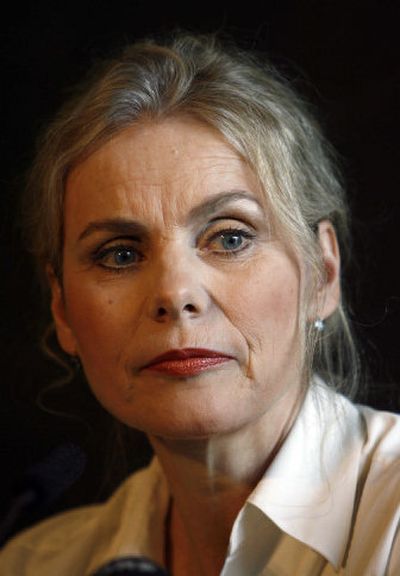Berlin opera canceled over fears of backlash

BERLIN – German lawmakers and cultural leaders assailed a Berlin opera house Tuesday for canceling a production that included a scene of the severed head of the prophet Muhammad, saying it was caving in to fears about religious extremism.
Officials with the world-renowned Deutsche Oper decided late Monday that the show – an avant-garde remake of Mozart’s “Idomeneo” – could not go on after police warned that it could result in a violent backlash from Muslim fundamentalists. Opera officials said they were worried about a repeat of the worldwide protests that erupted this year after a Danish newspaper published cartoons satirizing Muhammad.
Kirsten Harms, general manager of the Deutsche Oper, said Tuesday that top Berlin police officials had said the production would “pose an incalculable security risk to the public and employees.”
“If I had paid no attention and something had happened, everyone would rightly say that I had ignored the warnings of security officials,” she said at a news conference.
Director Hans Neuenfels declined to cut the scene, and so the production was canceled.
The mayor of Berlin, federal officials and other lawmakers panned the decision, arguing that it was wrong to squelch artistic expression, even if it risked offending Muslims. “Our ideas about openness, tolerance and freedom must be lived on the offensive,” Mayor Klaus Wowereit said.
German Interior Minister Wolfgang Schaeuble called the cancellation crazy and unacceptable during a visit to Washington.
In a meeting with Washington Post reporters and editors, he added: “We have to be very, very clear: We will not begin to discuss it. Otherwise we will not be convincing. Tolerance needs a clear position.”
The show premiered at the Deutsche Oper in March 2003 and drew some jeers – but no violence – for a scene in which Idomeneo, the king of Crete, balks at making sacrifices to the gods and instead produces the severed heads of Muhammad, Jesus, Buddha and Poseidon, god of the sea.
Set in ancient Greece, the opera is considered a forceful critique of theological dogma and wars conducted in the name of religion. Neuenfels’ three-act, Italian-language production was last performed at the Deutsche Oper in 2004.
Islamic tradition bans depictions of Muhammad and other prophets. About 5 percent of Germany’s 83 million people are Muslim.
Coincidentally, the German government is sponsoring a conference on Islamic relations today a few blocks from the Deutsche Oper. The event is intended to aid the assimilation of Muslim immigrants in German culture and bolster religious tolerance.
Ali Kizilkaya, chairman of the Islamic Council for Germany, praised the decision to cancel the opera, saying that “it could certainly offend Muslims.”
“Nevertheless, of course I think it is horrible that one has to be afraid,” he added in a radio interview. “That is not the right way to open dialogue.”
Germany has a strong tradition of free speech developed largely in response to the censorship policies enforced by the Third Reich.
In fact, the Nazis took control of the Deutsche Oper after they came to power in 1933. Propaganda Minister Joseph Goebbels oversaw the programming, and a box was reserved for Adolf Hitler.